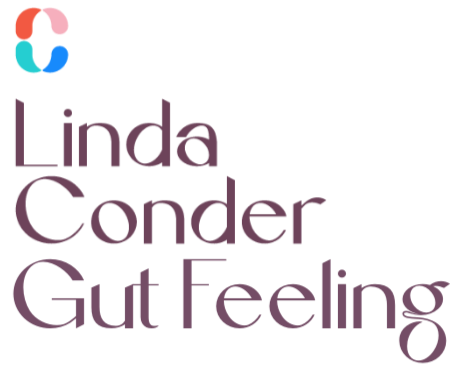Alcohol and Colon Cancer: A Cautionary Tale
At a recent party, a friend of mine in his late 40s casually shared that he had recently undergone bowel surgery to remove colon cancer. With a drink in hand, he described it as “the good cancer,” delivering the news amidst the festive atmosphere. Curious about his outlook on lifestyle changes, I asked if he had considered cutting out alcohol or if his doctors had recommended it. Laughing, he shrugged off the idea with a casual, “Nah!”
His response left me reflecting on several things: What advice, if any, had his doctors given about diet and lifestyle? What choices might have led to his diagnosis? And perhaps most importantly, why wasn’t he interested in making changes now? I didn’t press the issue—he clearly wasn’t open to a lecture—but I hoped my question might plant a small seed, encouraging him to reflect or research further in his own time.
What Does the Research Say About Alcohol and Colon Cancer?
Alcohol consumption is a significant risk factor for colorectal cancer (CRC), with research highlighting a dose-dependent relationship. A meta-analysis of 16 studies found that even moderate drinking can increase the risk of CRC, with higher levels of alcohol consumption further amplifying this risk. Specifically, individuals consuming more than 30 grams of alcohol per day (equivalent to approximately two standard drinks) showed a markedly increased likelihood of developing colorectal cancer compared to non-drinkers or those with minimal intake.
Evidence from another study shows that each 10-gram increase in daily alcohol consumption increases CRC risk by 7% (Cho et al., 2011). These findings underscore the importance of limiting alcohol consumption to minimal or occasional levels as part of a preventative lifestyle strategy. Combining this with a high-fibre diet, which promotes healthy gut bacteria, and limiting red and processed meats can further support colon health and significantly lower cancer risk.
Alcohol influences CRC development by altering gut microbiota composition, increasing inflammation, and promoting the production of harmful compounds that can damage intestinal cells.
Why Does Alcohol Increase Colon Cancer Risk?
Acetaldehyde Production:
Alcohol breaks down into acetaldehyde, a toxic compound that damages DNA and proteins in cells, contributing to cancer development.Inflammation and Oxidative Stress:
Chronic alcohol consumption promotes inflammation in the gut lining and generates free radicals, increasing the likelihood of abnormal cell growth.Gut Microbiome Disruption:
Alcohol alters the balance of gut bacteria, promoting harmful species that contribute to carcinogenesis.Nutrient Malabsorption:
Alcohol interferes with the absorption of folate, a nutrient critical for DNA repair and replication. Folate deficiency is linked to higher colon cancer risk.
A Missed Opportunity for Prevention?
For my friend, the choice to continue drinking despite his surgery reflects a broader cultural attitude toward alcohol: it’s seen like a harmless pleasure, even in the face of overwhelming evidence to the contrary. Colorectal cancer is the third most common cancer globally, and alcohol is one of its preventable risk factors.
What Can You Do to Lower Your Risk?
Limit Alcohol Intake:
If you drink, aim to stay under two standard drinks per day and include alcohol-free days each week.
For individuals with a history of colorectal cancer or a genetic predisposition, consider avoiding alcohol entirely.
Make up your own mocktails using this Gut Guardian Recipe as a guide.
Adopt a Gut-Friendly Diet:
Focus on fibre-rich foods like fruits, vegetables, and whole grains to promote gut health.
Include fermented foods like kimchi, sauerkraut, and kefir to support a healthy microbiome.
Reduce your intake of processed meat.
Stay Physically Active:
Exercise reduces inflammation and promotes healthy digestion, reducing colon cancer risk.Consider Supplements for Recovery and Prevention:
Probiotics: Support gut microbiome balance (e.g., Lactobacillus rhamnosus, Bifidobacterium longum).
Glutamine: Aids in gut lining repair.
Curcumin: Reduces inflammation and oxidative stress.
Zinc Carnosine: Strengthens gut lining.
If you would like more information about gut testing or supplements you can find them on this website or email us at support@lindaconder.com
References
Fedirko, V., Tramacere, I., Bagnardi, V., Rota, M., Scotti, L., Jenab, M., ... & La Vecchia, C. (2011). Alcohol drinking and colorectal cancer risk: an overall and dose–response meta-analysis of published studies. Annals of Oncology, 22(9), 1958-1972. https://pubmed.ncbi.nlm.nih.gov/21307158/
Meta-analysis of 16 studies on alcohol and colorectal cancer risk. https://pmc.ncbi.nlm.nih.gov/articles/PMC6819207/
MEDICAL DISCLAIMER
The information found on Linda Conder Gut Feeling or any of its media platforms is intended for informational and educational purposes only. Any statements made on these platforms are not intended to diagnose, cure, treat or prevent any disease or illness. Please consult with your medical practitioner before making any changes to your current diet and lifestyle.


